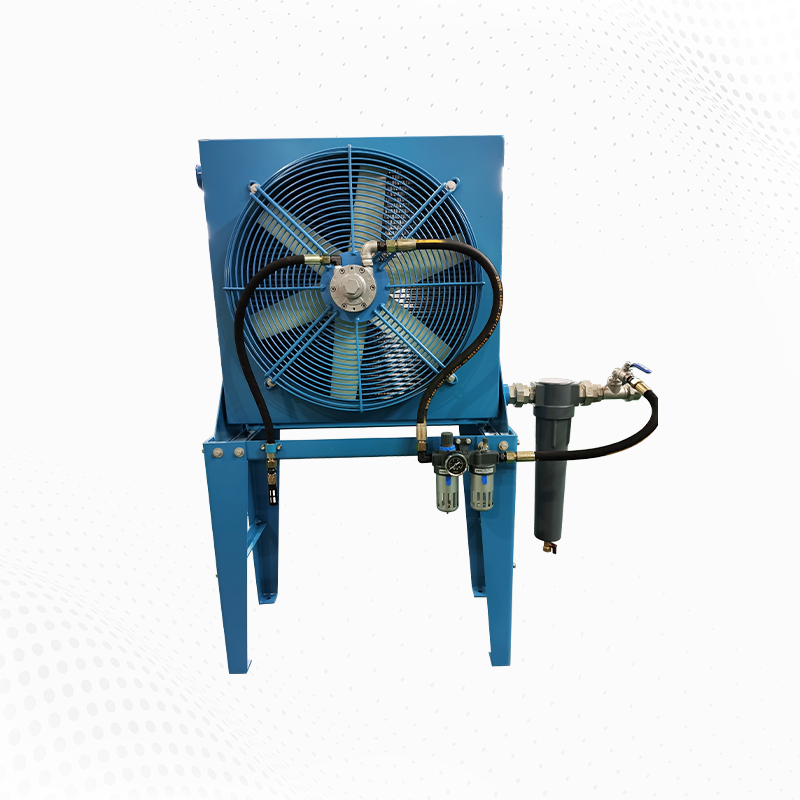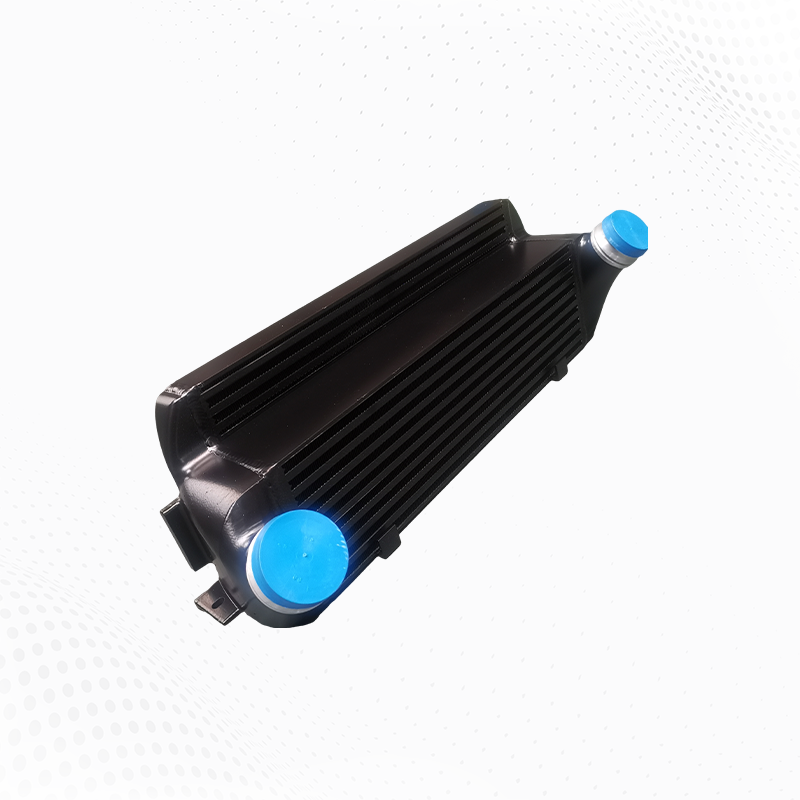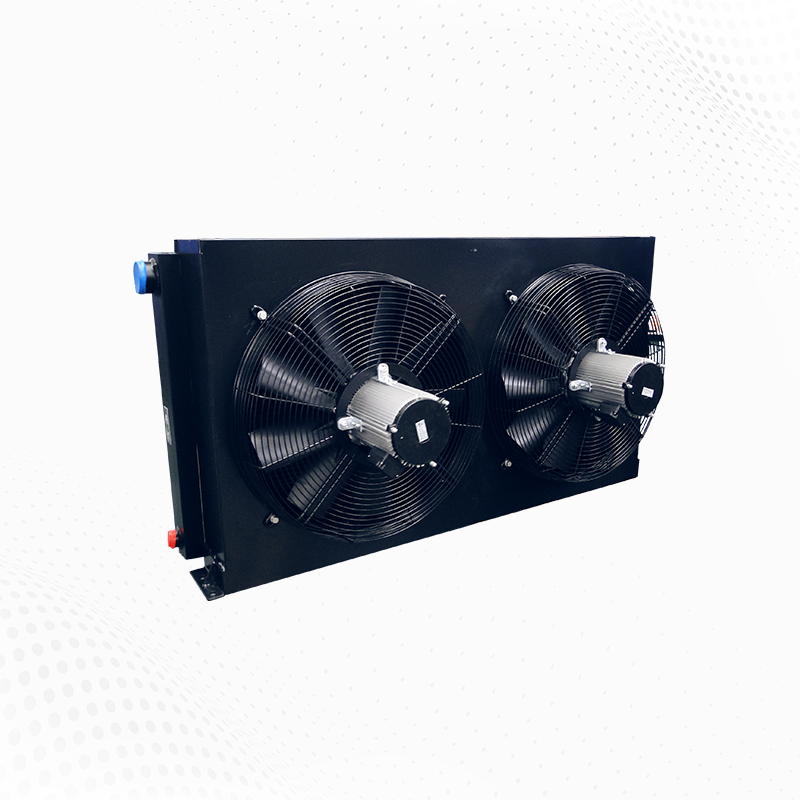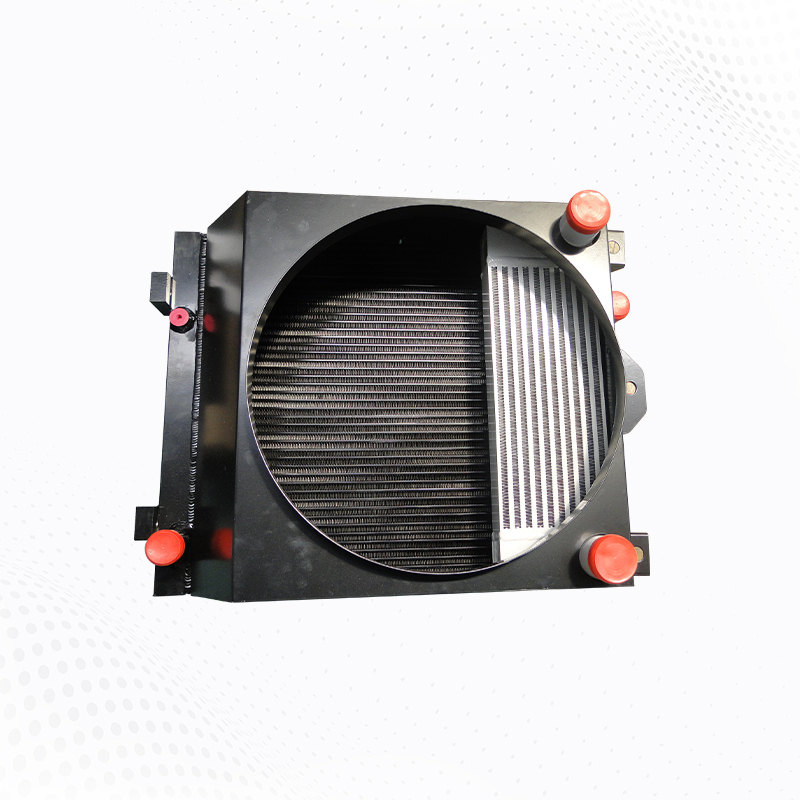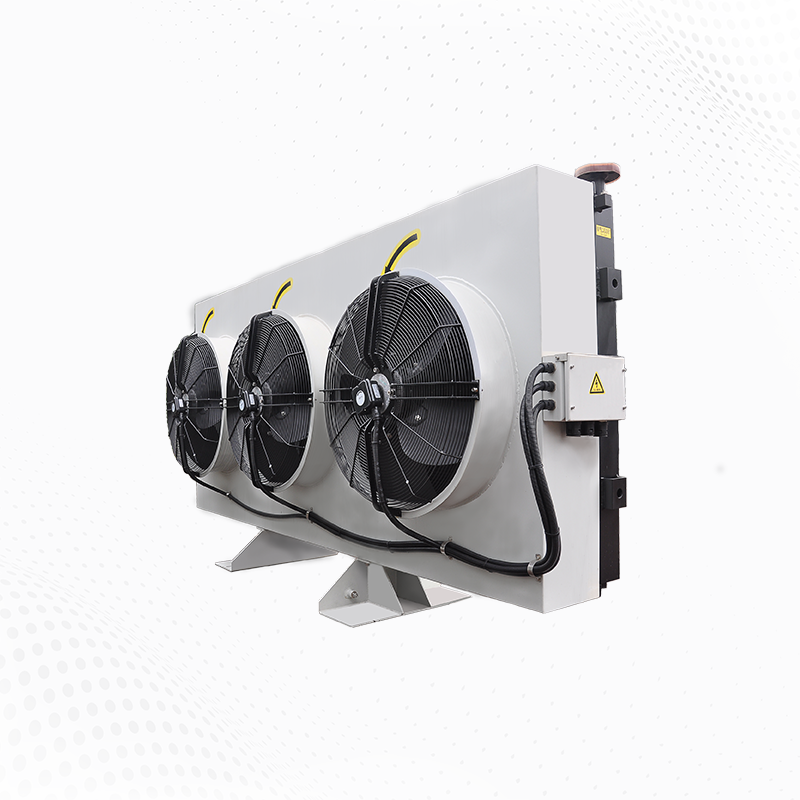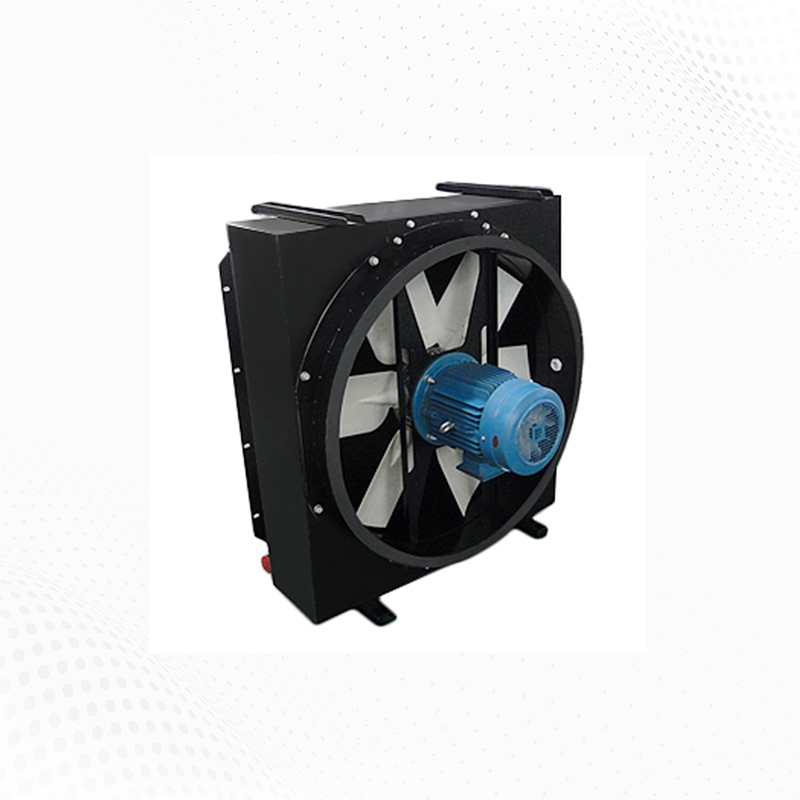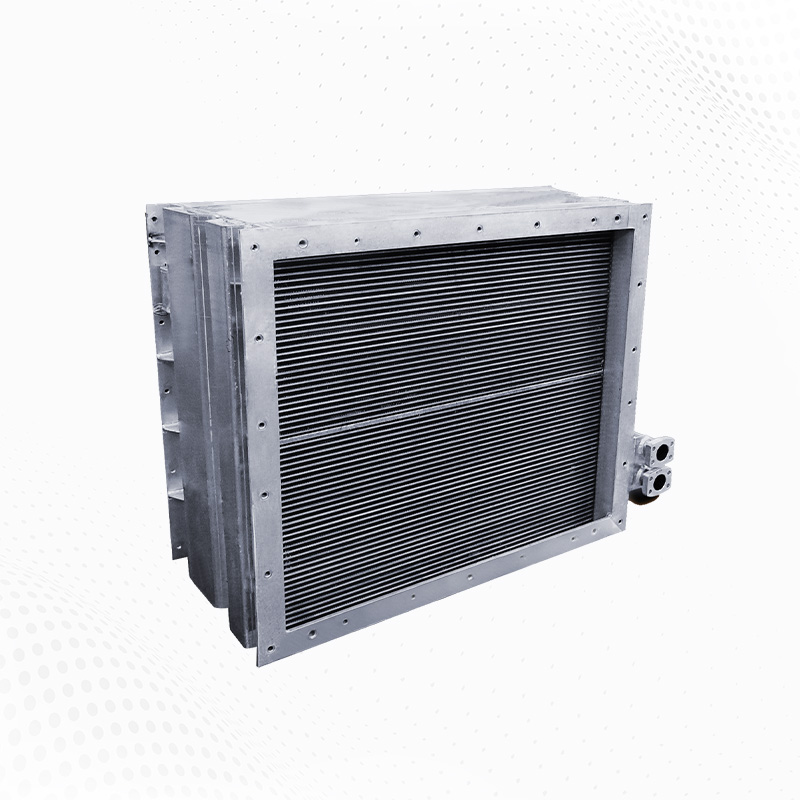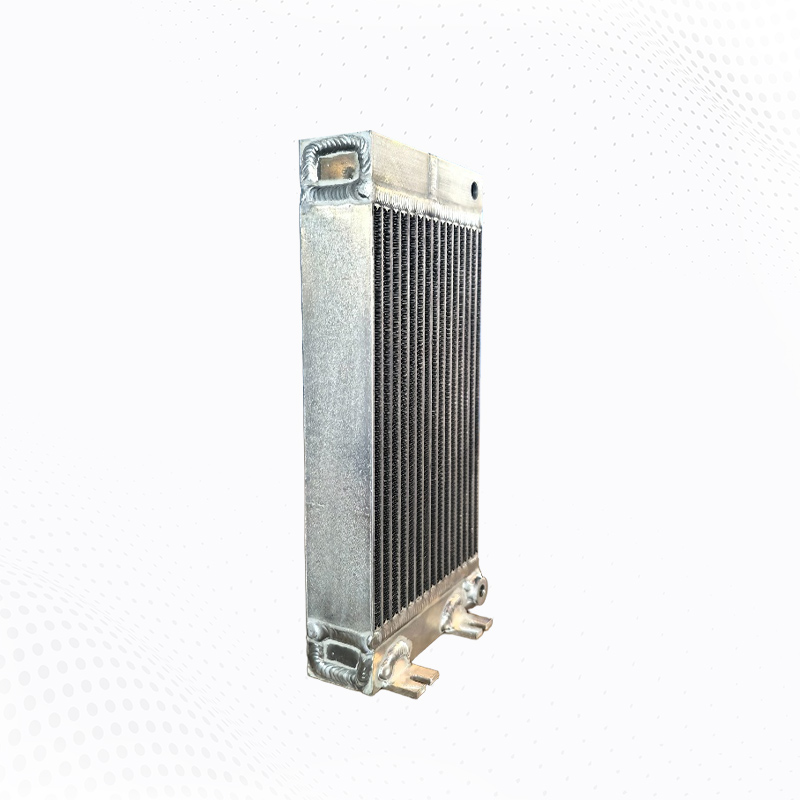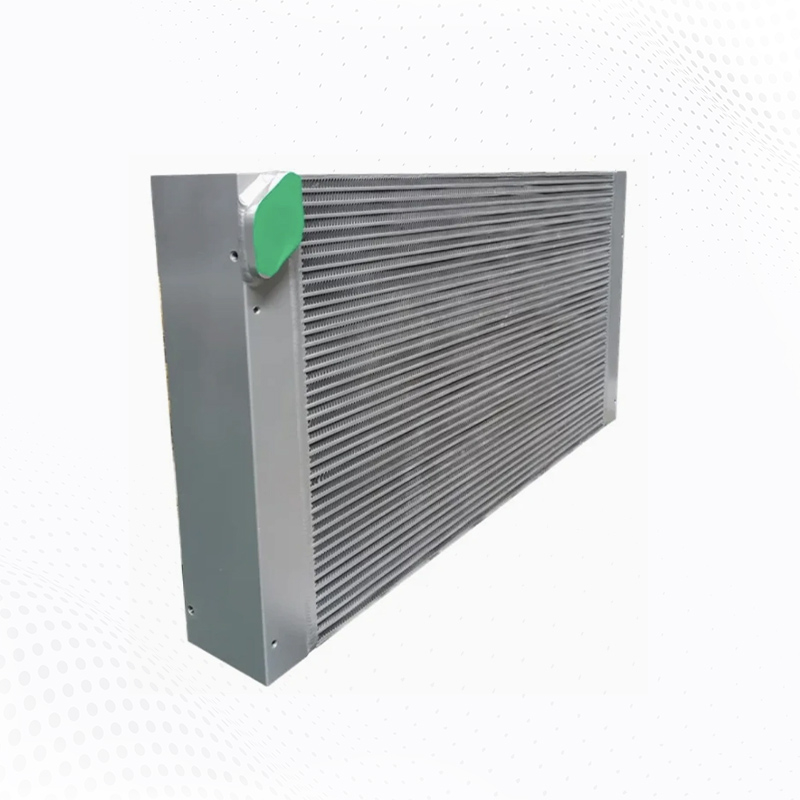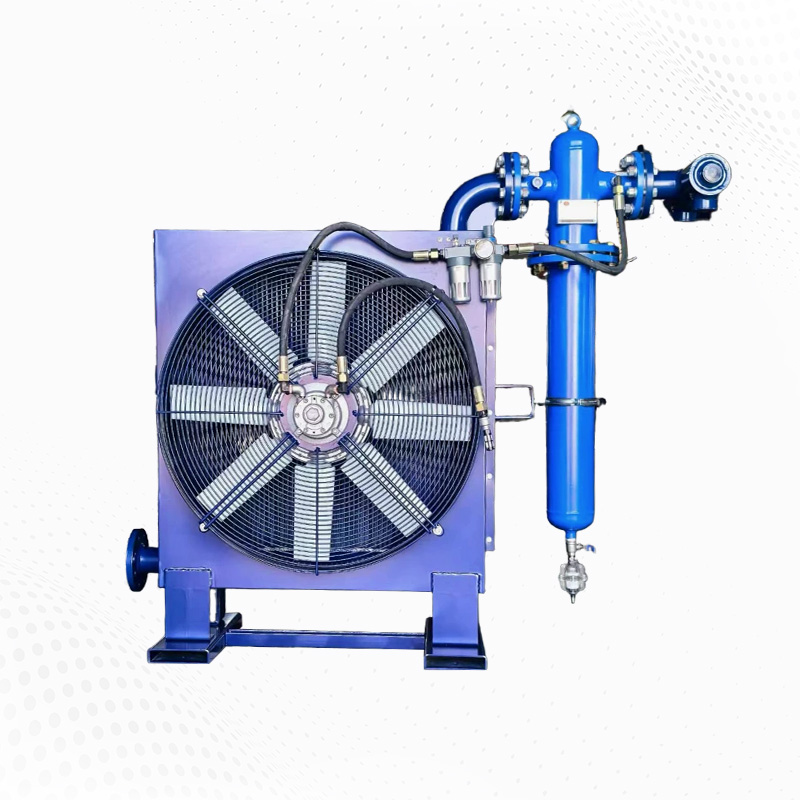What is a Hydraulic Oil Cooler?
A hydraulic oil cooler is a heat exchange device that cools hydraulic fluid used in various machinery, including construction equipment, agricultural machinery, and manufacturing systems. By dissipating heat from the hydraulic oil, the cooler ensures that the fluid remains within an optimal temperature range, preventing damage and maintaining system efficiency. The hydraulic oil cooler typically uses air or water to remove excess heat, and the hydraulic cooling fan is essential in this cooling process.
How a Hydraulic Cooling Fan Works
1、Heat Generation in Hydraulic Systems: As hydraulic oil circulates through the system, it absorbs heat generated by pumps, motors, and other hydraulic components. If the temperature of the hydraulic oil exceeds safe limits, it can lead to reduced performance and potential failures.
2、Function of the Hydraulic Oil Cooler: The hydraulic oil cooler acts as a heat exchanger where heat is transferred from the hydraulic oil to the cooling medium—usually air. This process is vital for maintaining the efficiency of hydraulic systems and preventing overheating.
3、Activation of the Hydraulic Cooling Fan: The hydraulic cooling fan plays a crucial role in the cooling process. It is typically activated by a temperature sensor that monitors the temperature of the hydraulic oil. When the temperature rises beyond a specified threshold, the fan turns on, drawing ambient air through the hydraulic oil cooler.
4、Heat Transfer Process: As the hydraulic cooling fan operates, it forces cool air across the fins or tubes of the hydraulic oil cooler. This airflow enhances the heat exchange process, allowing heat from the hydraulic oil to dissipate into the air. The cooled hydraulic oil then returns to the system, while the heated air is expelled.
5、Continuous Operation: The hydraulic cooling fan continues to operate as long as the hydraulic system generates heat. It may cycle on and off based on the temperature of the hydraulic oil, ensuring that the cooling process is efficient and responsive to changing conditions.
Benefits of a Hydraulic Cooling Fan
·Enhanced Efficiency: By keeping hydraulic oil at optimal temperatures, the hydraulic cooling fan contributes to the overall efficiency of hydraulic systems. This leads to improved performance and reduced energy consumption.
·Extended Equipment Life: Effective cooling prevents overheating, which can cause wear and tear on hydraulic components. By maintaining stable temperatures, the hydraulic oil cooler and cooling fan combination helps prolong the lifespan of the equipment.
·Prevention of Overheating: Timely activation of the hydraulic cooling fan prevents the hydraulic oil from reaching damaging temperatures, thus avoiding fluid breakdown and potential system failures.
·Versatile Applications: Hydraulic cooling fans are used across various industries, from agriculture to manufacturing, demonstrating their importance in maintaining hydraulic system performance.
Conclusion
In conclusion, a hydraulic cooling fan is an essential component of the hydraulic oil cooler system, playing a vital role in managing the temperature of hydraulic fluids. By ensuring effective heat dissipation, the hydraulic cooling fan enhances the efficiency and longevity of hydraulic systems. Understanding how a hydraulic oil cooler and its cooling fan work together can help operators maintain optimal performance in their machinery, ensuring smooth and reliable operations across diverse applications.


